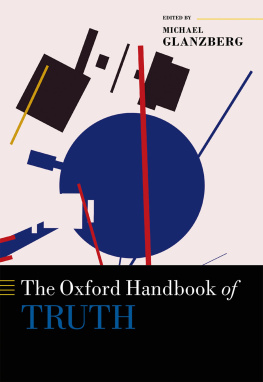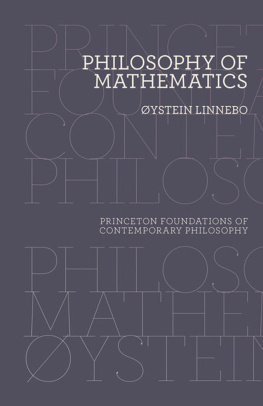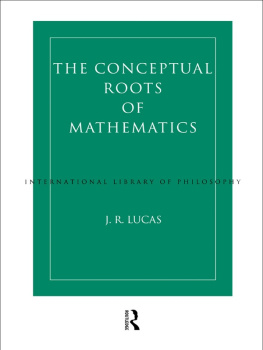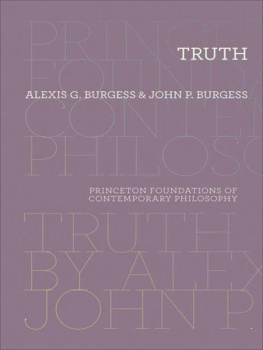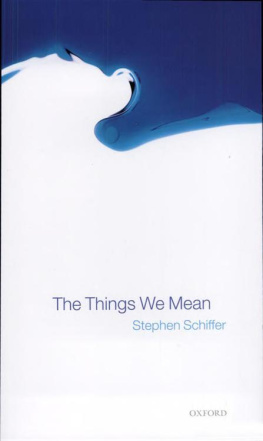
Field, Hartry Professor of Philosophy, New York University
Truth and the Absence of Fact
Publication date 2001 (this edition)
Print ISBN-10: 0-19-924289-5
Print ISBN-13: 978-0-19-924289-4
doi:10.1093/0199242895.001.0001
Abstract: This is a collection of papers, written over many years, with substantial postscripts tying them together and giving an updated perspective on them. The first five are on the notions of truth and truth-conditions, and their role in a theory of meaning and of the content of our mental states. The next five deal with what I call 'factually defective discourse'discourse that gives rise to issues about which, it is tempting to say that, there is no fact of the matter as to the right answer; one particular kind of factually defective discourse is called 'indeterminacy', and it gets the bulk of the attention. The final bunch of papers deal with issues about objectivity, closely related to issues about factual defectiveness; two deal with the question of whether the axioms of mathematics are as objective as is often assumed, and one deals with the question of whether our epistemological methods are as objective as they are usually assumed to be.
Keywords: correspondence theory of truth,factual defectiveness,Hartry Field,indeterminacy,meaning,philosophy,philosophy of language,philosophy of mathematics,objectivity,Quine,reference,semantics,Stalnaker,Tarski,truth,truth-condition,vagueness
Truth and the Absence of Fact
end p.i
end p.ii
Truth and the Absence of Fact
CLARENDON PRESS OXFORD
2001
end p.iii

Great Clarendon Street, Oxford ox2 6dp
Oxford University Press is a department of the University of Oxford
It furthers the University's objective of excellence in research, scholarship,
and education by publishing worldwide in
Oxford New York
Auckland Bangkok Buenos Aires Cape Town Chennai
Dar es Salaam Delhi Hong Kong Istanbul Karachi Kolkata
Kuala Lumpur Madrid Melbourne Mexico City Mumbai Nairobi
So Paulo Shanghai Taipei Tokyo Toronto
Oxford is a registered trade mark of Oxford University Press
in the UK and in certain other countries
Published in the United States by
Oxford University Press Inc., New York
in this collection Hartry Field 2001
The moral rights of the authors have been asserted
Database right Oxford University Press (maker)
First published 2001
All rights reserved. No part of this publication may be reproduced,
stored in a retrieval system, or transmitted, in any form or by any means,
without the prior permission in writing of Oxford University Press,
or as expressly permitted by law, or under terms agreed with the appropriate
reprographcs rights organization. Enquiries concerning reproduction
outside the scope of the above should be sent to the Rights Department,
Oxford University Press, at the address above
You must not circulate this book in any other binding or cover
and you must impose this same condition on any acquirer
British Library Cataloguing in Publication Data
Data available
Library of Congress Cataloging in Publication Data
Field, Harvey H., 1946
Truth and the absence of fact/Harvey Field.
p. cm.
Includes bibliographical references and index.
1. Truth. 2. Language and languagesPhilosophy.
3. Objectivity. I. Title.
BD171 F48 2001 121-dc21 2001016331
ISBN 0-19-924171-6
ISBN 0-19-924289-5 (pbk)
end p.iv
For
Julia Wrigley
and
Elizabeth Wrigley-Field
end p.v
end p.vi
Preface
My first published paper (Chapter of this volume) were on vagueness.
Actually they weren't primarily on vagueness proper, but on a more general phenomenon that I called referential indeterminacy; vagueness is simply one rather unexciting instance of this phenomenon. Part .
The earliest papers in this volume were written nearly thirty years ago, and my views have undergone important changes. This is most obvious in the case of truth (Part .
I should say that the format proposed for a correspondence theory in Chapters was slightly nontraditional: instead of explicitly talking of a correspondence between sentences (or states of thinking) and facts or states of affairs, I talked of a correspondence ('primitive reference') between components of the sentences (or states of thinking) and objects, properties and the like. But these objects, properties, and so forth could be thought of as components of states of affairs, so I think the view advocated in these papers captures the main idea behind more traditional correspondence theories. These two papers viewed the correspondence relation as a naturalistic relation of which we need
end p.vii
a theoretical account. But shortly after the second of these two papers first appeared (1978), I began to have doubts about this 'correspondence-theoretic' picture and my arguments for it; and I began to see that the 'deflationary' picture, long advocated by Quine, had more to be said for it than I had realized. The deflationary picture gives a strongly 'first-person orientation' to the notions of truth and reference: in particular, questions about the reference of foreign terms become essentially equivalent to questions about how to translate them, and the theory of the reference relation becomes virtually equivalent to the theory of translation. (first published in 1994) is where I first came down fully in favor of the deflationary viewpoint.
I have attached rather substantial postscripts to Chapters elaborates and improves upon the deflationary perspective. I have also included a chapter new to this volume, on meaning attribution: among other things, it suggests a reformulation of the deflationary view of truth that I believe many philosophers will find more congenial.
Part , as I've said, is about vagueness, indeterminacy, and factual defectiveness. These issues have important connections to issues about truth, so it is not surprising that as my views on truth changed my views on these subjects changed too; but they have not changed as much as one might have expected, for reasons I discuss in several of the papers. In particular, a theme in many of the later essays is that minimalism about truth should not be taken to rule out the existence of semantic indeterminacy or other forms of factually defective discourse, even in our current language.
The two papers from the 1970s on these matters that I have included here (Chapters ) were originally conceived as part of a program to defuse the threat to a correspondence theory posed by Quine's indeterminacy arguments. Quine clearly thought of his indeterminacy arguments as supporting a deflationary perspective on truth and reference; however, the way that the arguments were formulated also presupposed deflationism, in that it was assumed that the primary semantic notion was translation and that it was that which must be shown indeterminate. From the viewpoint of a correspondence theory, not all indeterminacy of translation is due to indeterminacy of reference: some of it is due to terms in the foreign language being referentially different from terms in the home language. The most obvious cases are where the foreign language has a word that refers to an object or property or whatever that can't be precisely picked out in the home language, but where there are a bunch of equally good approximations. More interesting are cases where the



